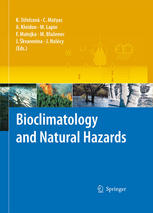

Most ebook files are in PDF format, so you can easily read them using various software such as Foxit Reader or directly on the Google Chrome browser.
Some ebook files are released by publishers in other formats such as .awz, .mobi, .epub, .fb2, etc. You may need to install specific software to read these formats on mobile/PC, such as Calibre.
Please read the tutorial at this link: https://ebookbell.com/faq
We offer FREE conversion to the popular formats you request; however, this may take some time. Therefore, right after payment, please email us, and we will try to provide the service as quickly as possible.
For some exceptional file formats or broken links (if any), please refrain from opening any disputes. Instead, email us first, and we will try to assist within a maximum of 6 hours.
EbookBell Team

4.8
14 reviewsAnthropogenic influences to the earth's system, including the atmosphere, hydrosphere, biosphere, cryosphere and lithosphere, represent a serious challenge to our planet's ecosystems and natural environments. Bioclimatology, hydrology, bio-hydrology and eco-physiology are important scientific research areas with wide application to environmental protection, forestry, agriculture and water management, and protection against natural hazards including droughts, floods, windstorms, weather extremes, and wild fires. Bioclimatology helps to better understand the causes and impacts of natural hazards and how to prevent them. Improved knowledge of natural hazards is a vital prerequisite for the implementation of integrated resource management. It provides a useful framework for combating current climate variability and for adapting to ongoing climate change.
This book presents research on the interactions between meteorological, climatological, hydrological and biological processes in the atmospheric and terrestrial environment. It highlights a spectrum of topics associated with climate change and weather extremes and their impact on different economic sectors. The contributing authors come from renowned scientific research institutions and universities and specialise in issues of climate change, soil-plant-atmosphere interactions, hydrologic cycle, ecosystems, biosphere, and natural hazards.